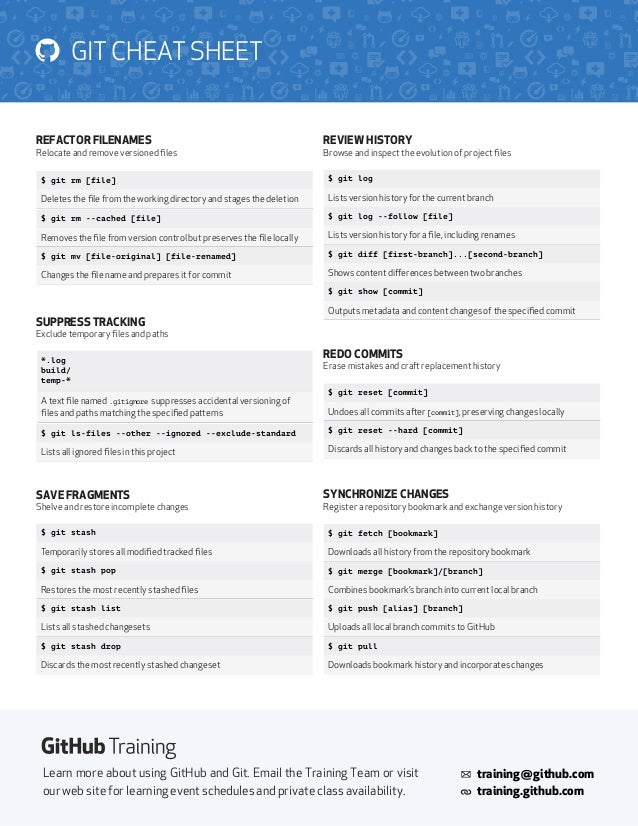Typeracer.com cheat. GitHub Gist: instantly share code, notes, and snippets. Git Cheat Sheet Introduction. Teams of developers and open-source software maintainers typically manage their projects through Git, a distributed version control system that supports collaboration. This cheat sheet-style guide provides a quick reference to commands that are useful for working and collaborating in a Git repository. Combines remote tracking branches into current local branch $ git push. Uploads all local branch commits to GitHub $ git pull. Updates your current local working branch with all new commits from the corresponding remote branch on GitHub. Git pull is a combination of git fetch and git merge. Today we'll walk through some Git basics, including Git commands like pull, push, and fetch. At the end of the article, you can download a one-page Git cheat sheet rich with the Git commands of champions, the gems that make your SCM a pleasure to work with, the ok, enough’s enough, let’s get down to business. Using Git Init and Git Clone.
Create repositories
A new repository can either be created locally, or an existing repository can be cloned. When a repository was initialized locally, you have to push it to GitHub afterwards.
$ git init

Github Cheat-engine Cheat-engi
The git init command turns an existing directory into a new Git repository inside the folder you are running this command. After using the git init command, link the local repository to an empty GitHub repository using the following command:
$ git remote add origin [url]
Specifies the remote repository for your local repository. The url points to a repository on GitHub.
$ git clone [url]
Clone (download) a repository that already exists on GitHub, including all of the files, branches, and commits
The .gitignore file
Github Cheat Sheet Mug
Sometimes it may be a good idea to exclude files from being tracked with Git. This is typically done in a special file named .gitignore. You can find helpful templates for .gitignore files at github.com/github/gitignore.
Synchronize changes
Synchronize your local repository with the remote repository on GitHub.com
$ git fetch
Github Cheat Engine
Downloads all history from the remote tracking branches
$ git merge
Combines remote tracking branches into current local branch
$ git push
Uploads all local branch commits to GitHub
$ git pull
Github Cheats
Updates your current local working branch with all new commits from the corresponding remote branch on GitHub. git pull is a combination of git fetch and git merge
